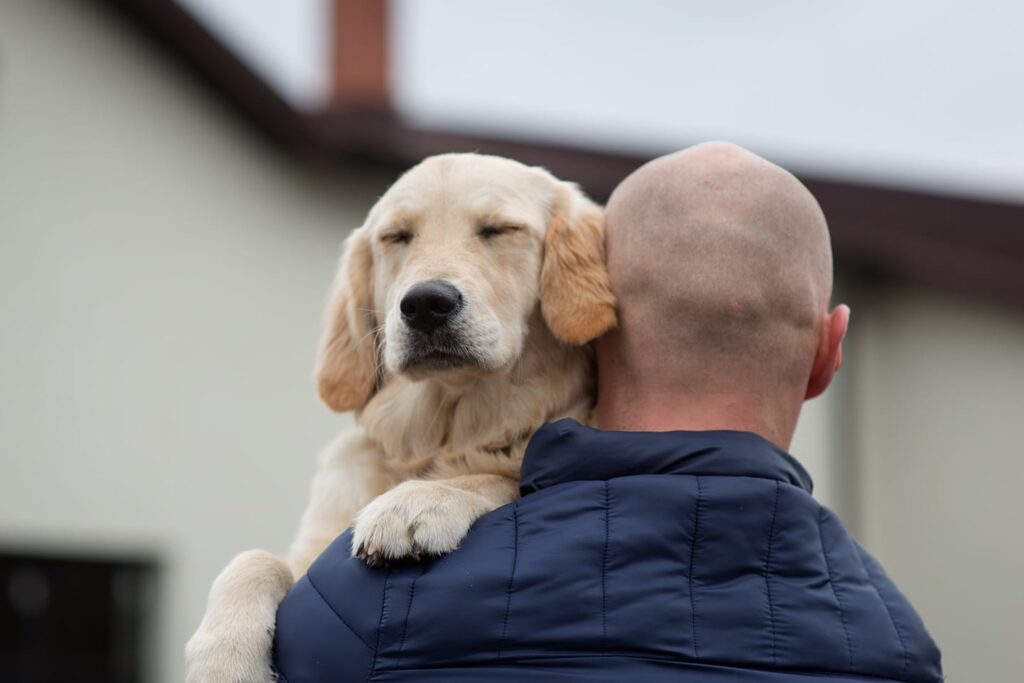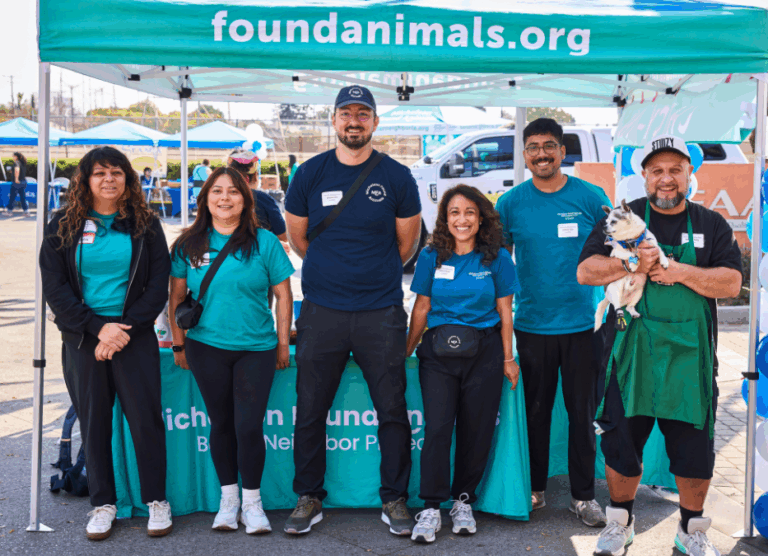PTSD Service Dogs Help Veterans Adjust to Civilian Life

This Veterans Day, Found Animals would like to thank the men and women who serve or have served in our nation’s armed forces. We would also like to take a moment to celebrate PTSD service dogs’ role in supporting these brave Americans.
Many folks are aware of K9 units – dogs who sniff for drugs, bombs or missing persons. In fact, a Belgian Malinois named Cairo aided United States Navy SEALs during Operation Neptune Spear, during which Osama Bin Laden was killed. However a lot of people don’t know about the role dogs play in taking care of veterans after they return to civilian life.
About PTSD Service Dogs
Post-Traumatic Stress Disorder is caused by trauma, such as a life-threatening event. An estimated 20 percent of veterans suffer from it. Side-effects range from occasional anxiety to complete inability to function. PTSD can have dire consequences, but with proper treatment, recovery is possible. Today veterans turn to many treatments including therapy, medication and… dogs!
That’s right. Veterans are successfully transitioning back to civilian life with the help of PTSD service dogs. These animals have responsibilities similar to those of other service dogs, such as seeing eye dogs. They accompany their owner almost everywhere and assist them with day-to-day tasks.
These remarkable PTSD service dogs have many skills, including waking vets up from nightmares, interrupting flashbacks and even stopping impending panic attacks. Some service animals perform perimeter checks to ease their owner’s paranoia. Just like other service dogs they are also allowed special access to stores, restaurants and other places where regular dogs may not be permitted entry.
Sometimes the benefit of having a service animal is just as simple as pure companionship. Like anyone else, veterans with PTSD enjoy a dog’s unconditional love. Having a pet makes them feel needed and provides their lives with structure. Just watching a movie or going for a walk together eases the effects of severe anxiety.
How to Help
There are several ways to help vet pet programs. First, consider making a donation to some of the organizations listed below. You can also sign up as a volunteer. Many of these groups need help pulling qualified pets from shelters and training them to be suitable service dogs. Other organizations breed dogs and train them as puppies. Animals need to learn several skills to qualify as PTSD service dogs. These abilities go far beyond “sit” and “stay.” It takes a patient person to teach these skills, particularly if their pupil is still just a puppy.
Resources
If you are a veteran (or anyone else!) and suspect you might be suffering from PTSD, please seek out professional help. Again, PTSD is nothing to be ashamed of and treatable with the right resources.
Veteran’s and PTSD Crisis Hotline: 1-866-382-2287
Veterans Crisis Line: 1-800-273-8255 or text to 838255
National Suicide Prevention Lifeline: 1-800-273-8255
America’s VetDogs: 1-866-838-3647
Stiggy’s Dogs: 1-246-0413



